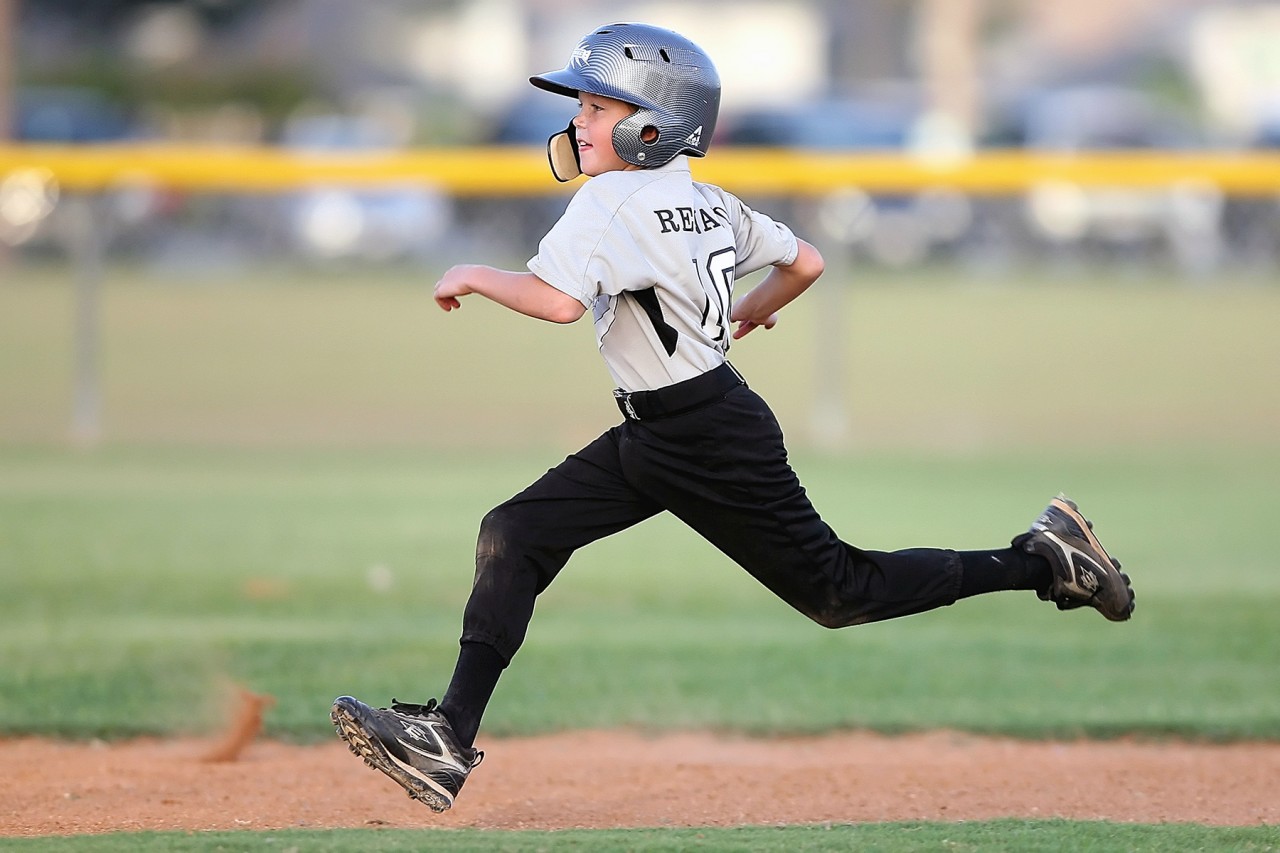July 2017
Parents with active kids sometimes struggle to find a balance between the benefits of challenging physical activity and keeping their children safe. How much is too much? When does an injury require medical attention? Are we paying enough attention to the emotional health of young athletes?
WHEN TO SEEK MEDICAL TREATMENT
When a child complains about a sports injury, my first recommendation is to trust your instinct. If you think something’s wrong, check it out. I’d rather see a patient when there’s nothing to worry about than miss an opportunity to help a child recover and heal properly.
If you’re not sure whether your child needs a medical assessment, watch them when they’re doing something other than complaining about their injury. If they tell you their ankle hurts when it’s time to go to practice, but then race their little brother to the car for the right to sit in the front seat without complaint, they’re probably fine. If, on the other hand, they hesitate to do things they usually love to do, or they forget they have an injury until they respond in pain, then it’s time to pay attention.
One exception is head trauma. Young athletes should definitely be evaluated by a medical professional if they experience any significant head trauma. Injuries to the brain can have serious, long-term effects if the child does not immediately stop participating, get properly diagnosed, and then gradually return to play with medical supervision.
HOW TO PREVENT INJURIES
Ideally, rather than responding to injuries, it’s best to prevent them. For sports that require safety equipment, athletes should use the equipment at practice and during games. This helps prevent injury, and adheres to the adage, “Practice how you play.” If you train with the equipment, you’ll probably perform better on game day.
Other important ways to prevent injury include proper conditioning and good nutrition. Athletes typically want to test their mettle and best their opponents, and sometimes they push themselves beyond their physical limits to do so. Building strength and endurance doesn’t happen overnight.
Good nutrition—including appropriate hydration—is also important to keep young bodies functioning optimally. Water is usually the best form of hydration for young athletes. Almost none of the kids I coach need Gatorade or other electrolyte-replacement drinks unless they undergo sustained physical activity with heavy perspiration. Then some electrolytes need to be replaced.
To prevent repetitive injuries, children shouldn’t specialize in a single, year-round sport until after they reach the age of 14. Playing a variety of sports improves motor skills, increases balance, and enhances coordination. Not only are children who specialize early more likely to be physically injured, they often burn out and stop enjoying the sport.
GETTING THE MOST OUT OF SPORTS
I’m a big supporter of youth sports as long as coaches and parents create a healthy culture, one that promotes teamwork and allows children to learn how to win and lose gracefully. When I’m coaching Little League, I focus on fundamentals, basics of the game, teamwork and respect. I hope to be a positive role model for my athletes and foster a love of the sport. That’s what turns them into champions. I share my love of the game and teach them the skills they need to play baseball as well as they can.
I also use sports to teach kids about leadership, teamwork, and interpersonal skills. We talk about the importance of each person performing their role/position as well as they can to help the whole team be successful. We also talk about how to deal with personalities they may find unpleasant in teammates, coaches, or opponents. These are the lessons they’ll carry with them long after their baseball days are over.
Without the right approach, sports can be demoralizing and lead to poor self-esteem, but as long as coaches and parents pay attention to their athletes’ physical and emotional health, sports are an excellent way to provide children with exercise—and to teach them about life.
Justin Ebert, PA, is the Medical Director of MCHC Health Centers, a local, non-profit, federally qualified health center offering medical, dental and behavioral health care to people in Lake and Mendocino Counties.

 MyChart Login
MyChart Login

